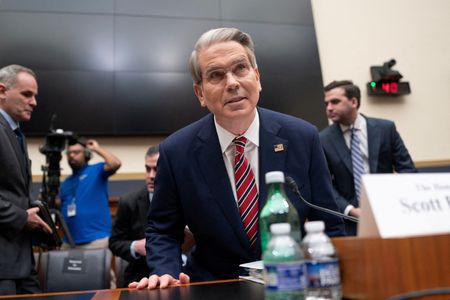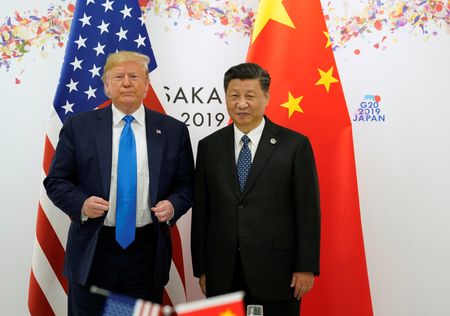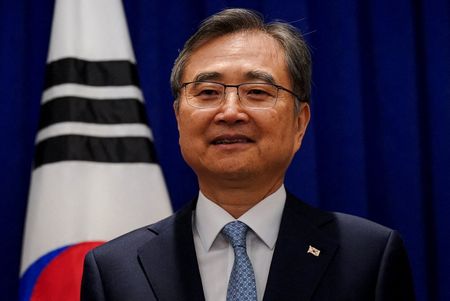By David Lawder
WASHINGTON (Reuters) -U.S. Treasury Secretary Scott Bessent will attend the Group of Seven finance leaders’ meeting in Canada next week and will seek to refocus the group on addressing trade imbalances and non-market economic practices, a Treasury spokesperson said on Sunday.
Bessent will join fellow G7 finance ministers and central bank governors in the Rocky Mountain resort town of Banff, Alberta. The G7 includes Canada, the U.S., Japan, Germany, France, Britain and Italy.
The Treasury spokesperson said Bessent will also discuss with these officials ways to generate more growth led by the private sector. Bessent has also vowed to “re-privatize” the U.S. economy by cutting government spending and regulation, arguing that it has relied too heavily on the public sector to drive growth.
Bessent attended his first in-person discussion with G7 finance leaders in April on the sidelines of International Monetary Fund and World Bank meetings, but the group did not issue a joint statement.
This year’s G7 chair, Canadian Finance Minister Francois-Philippe Champagne, said at the time the group remained united on many issues, but acknowledged tensions over Trump’s tariffs. Champagne added that G7 finance ministers welcomed Bessent’s declaration of U.S. support for the IMF and World Bank.
Bessent delivered the pledge along with a call for the IMF and World Bank to refocus on their respective core economic stability and development missions.
The Treasury spokesperson said Bessent also wanted to get the G7 back to basics and focused on addressing “imbalances and non-market practices in both G7 and non-G7 countries.”
This would include steps to counteract spillover effects from non-market practices into economies that follow market practices, the Treasury spokesperson said, without identifying any specific countries.
Bessent has consistently called out China’s state-driven non-market economic policies and subsidies for fueling massive excess manufacturing capacity that is threatening jobs, companies and economies throughout the world.
“China’s current economic model is built on exporting its way out of its economic troubles,” Bessent said in an April 23 speech. “It’s an unsustainable model that is not only harming China but the entire world.”
(Reporting by David LawderEditing by Rod Nickel)











